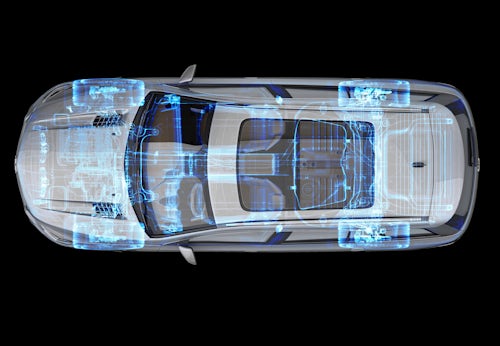Verification and validation bring the design of future cars to the present day
Development and verification platform
The design and verification of the connected autonomous vehicle must evolve with the shifting automotive landscape. Critical to the success of the industry are the availability of future methodologies and platforms that enable automotive architects to effectively explore different compute and sensor options in a closed-loop environment to simulate, test and validate their design against different vehicular compute and sensor configurations, deployment options and environmental variations. Such a methodology and platform must provide verification coverage of the complete vehicular system, enable characterization of a multi-vendor ecosystem, and benchmark different key performance indicators (KPIs) such as compute acceleration, power consumption and costs in a continuous and closed-loop manner through flexible business models.
Chip to cloud
The rise of data is rapidly transforming the connected, autonomous, shared and electric (CASE) vehicle landscape. Challenges and opportunities for automotive OEMs now extend beyond onboard components to related infrastructure and services. For example, take the concept of virtual traffic lights (VTL), which work by utilizing the car’s speed, acceleration and distance to calculate time to green. VTL can further communicate with real traffic light infrastructure to increase the driver’s visibility in poor weather and share traffic conditions and guidance with other cars. The capabilities of VTL are useful to municipalities for planning and safety purposes, while the practical benefits it provides can lead to safer road conditions and a reduction of green gas emission due to lower fuel and energy consumption. Beyond that, the intelligent road future represents new greenfield business opportunities for carriers and edge providers. In addition, the data generated are immensely valuable to the cloud enterprises that deal in the currency of user engagement and analytics. An effective design and verification platform offers an immersive environment for suppliers and companies to explore and develop connected automotive software and services in closed-loop settings that incorporate the automotive computing device, edge infrastructure and elements of the public or private cloud.
